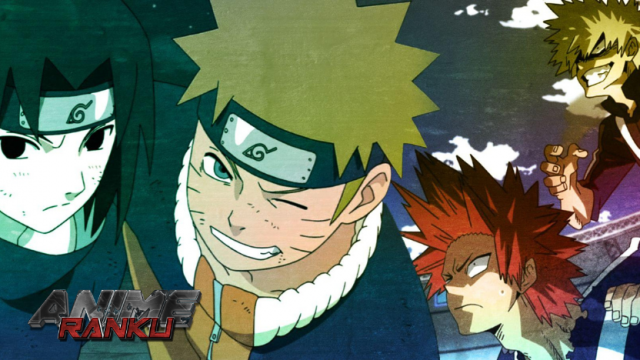A few well-known narrative cliches and recurrent themes can be found in the world of shonen anime, including the importance of never giving up, the strength of friendship, and getting what you deserve for your efforts. The young protagonists typically exhibit these noble qualities, with help from their adult mentors and teachers who may do so directly or indirectly.
The idea of a competitive exam, where each competitor is instructed to look out for themselves in order to score points and win, is one example. On the surface, shonen students appear to be competing against one another, but as numerous recent shonen titles have demonstrated, the rivalry is only a façade; the real lesson is for the young test takers to cooperate and complete their tasks as a group, even if no one instructed them to.
When Shonen Exams Induce Cooperation Through Reverse Psychology

The young protagonists in some anime exam scenes are given the rules, and those rules encourage selfish tactics. On the surface, the exam appears to divide the test takers into winners and losers, usually by offering insufficient points for everyone to succeed or by using other scarce resources. These tests are unexpected because the test takers are classmates or friends who are suddenly asked to turn against one another in order to compete for scarce points or rewards; Kakashi Hatake’s bell test from Naruto is a prime example. If one of the two bells is not won, one of the three genin loses their genin rank.
Another example is the Harvest Festival in Welcome to Demon School, Iruma-kun!, with Babyls students competing alone or in pairs to collect enough ingredients to score points. They’re even allowed to steal from each other, so long as students directly harm one another in the process. The scores are tallied at the end, and there can only be one winner, so demon students are indirectly prompted to act selfishly and steal points whenever they can, even if that means betraying friends.
That’s all just reverse psychology, however, because the real test is a mental one, not a points-based physical exam. Naruto and Iruma-kun! are shonen anime, and they would send a bad message if the students really were supposed to act selfishly and turn on one another in a survival of the fittest free-for-all. These students aren’t just allowed to cooperate to claim victory — the exams are set up so that they have to, and the teachers secretly hope the students will realize that for themselves. Kakashi knew that no single genin could take a bell from him, so Naruto, Sakura and Sasuke were secretly expected to cooperate to take the bells, no matter who ended up failing in the process.
Similarly, the Legend Leaf in Iruma-kun! was worth a massive 100,000 points, and only with teamwork and the power of friendship could anyone have claimed that leafy prize. The Legend Leaf itself said so, and Iruma Suzuki, an unusually cooperative and selfless student by Babyls standards, was the only one who could have pulled it off. Both this and Kakashi’s bell test prove that on a meta level, most mentors and teachers in shonen anime know what shonen is about, and they use reverse psychology to cultivate those values in their students’ minds.
Students must work together and look past the exam’s ostensibly self-serving rules. The entrance exam in My Hero Academia serves as a third illustration. There, UA hopefuls competed for points by engaging in combat with villain bots. Izuku’s selfless rescue of Ochaco Uraraka allowed him to pass even with a score of zero, contrary to the rules that rewarded selfish actions in order to gain points. All Might understood that proving oneself to be a true hero requires more than just Quirk power and points.
When Friendship Changes the Rules of a Shonen Exam or Competition

Numerous shonen exams and competitions foster the power of friendship; sometimes this is done as a psychological test, but other times the power of friendship invites itself into the exam without being asked. Even antiheroes or lone wolves like Sasuke Uchiha and Katsuki Bakugo, and even the mentors, might be caught off guard, most shonen heroes are cooperative and team-oriented individuals on the inside. Although the young test subjects may be expected to fight for their own interests in some shonen tournaments or tests, the shonen heroes will still band together or bravely save one another on their own.
One example was the UA sports festival tournament, a series of single-elimination duels. Izuku faced Shoto Todoroki in a memorable battle in round two, and even if only one of them could win at the expense of the other, Izuku still empathized with Shoto and encouraged Shoto to realize his full potential and fight for real. Shoto did so, and even if it cost Izuku the match, Izuku felt it was worth it, as did Shoto. This was a turning point for Shoto’s character arc, and Izuku didn’t need any tournament rules or reverse psychology to make it happen.
Anime fans can find other, more minor examples to reinforce this theme, such as the final exam for demon slayer trainees in Demon Slayer. It was every slayer for themselves in that mountain battle arena, but Tanjiro Kamado still risked his life to save other examinees from dangerous demons, whether or not he got rewarded or even thanked for it. Finally, the feuding Kyoto and Tokyo sorcerer students teamed up at once when the curses attacked, with Yuji and Aoi Todo going from brutal rivals to instant “brothers.”















Leave a Reply